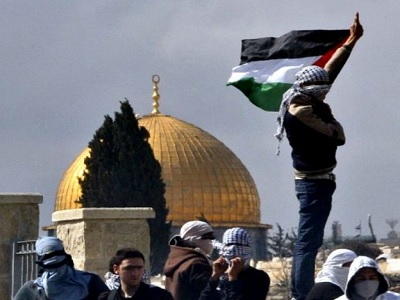
By Dr. Adnan Abu Amer
Since the outbreak of the Palestinian-Israeli clashes at the beginning of the month, one distinction was highlighted: the absence of a political and field leader. Meanwhile, the Palestinian youth continue to face the Israeli army individually, even in carrying out their armed operations, as well as the stabbings and hit-and-runs. This raises many questions regarding the absence of a leader and the ability of the Palestinian youth to continue their intifada without a leader.
Almost a month since the outbreak of Palestinian-Israeli clashes in the West Bank and Jerusalem in late September, the Palestinian factions still have not claimed responsibility for the incidents, and it seems that the actions in the arena are being committed spontaneously and randomly without a leadership to guide them.
There are Palestinian demands for the need to quickly form a unified national leadership to lead the intifada, in order to coordinate and maintain the national efforts and develop them. This would include the restoration of the PA’s leadership in Gaza, because if it remains in the West Bank, this will inevitably lead to the thwarting and abortion of the intifada. It is worth noting the Palestinian leaderships’ delay in addressing the clashes, occurring weeks after they broke out.
One of the most noticeable issues that indicate the absence of a unified Palestinian leadership over the current Palestinian events is the fact that until this moment, the Palestinians have not agreed on one name for them, giving it various names such as: Jerusalem Intifada, Popular Uprising, Revolutionary Wave and the Third Intifada. Therefore, the passing of all this time without the emergence of a political field leadership raises questions including: who is leading the popular movement? Is there a clear political vision and specific goals for this popular uprising, or are they emotional reactions to the Israeli storming of Al-Aqsa Mosque? It is worth noting that the average age of those participating in the protests, stabbings and hit-and-runs is under 20, i.e. those born after the signing of the Oslo Accords between the PLO and Israel in 1993.
The lack of a leadership for the uprising has become the main issue amongst Palestinians, as many have called for a field, rather than central leadership capable of planning and guiding the confrontation of the provocative Israeli decisions. Others have stressed the need for the intifada to remain spontaneous without a head to move and control it. A third opinion is that the success of the spontaneous popular uprising is irrefutable proof of the Palestinian organisations and their leaderships’ failure in its political performance of the past years. Meanwhile, others believe that rushing into the formation of a political leadership will harm the intifada because the leaderships of the factions are incapable and did not have a role in the outbreak of the uprising.
It is important to point out that the formation of a united political leadership is very important if the Palestinian factions participating in the events taking place in Palestine agree on a joint national programme, even if at the bare minimal level, regarding confronting the occupation. There are some factions that have ideas about forming this leadership, but most of those participating in the intifada are not affiliated with political trends and the agreement over a joint national programme requires in-depth and lengthy discussions.
Perhaps the Palestinian protestors will remain unable to continue their confrontations with the Israeli army without official backing by the Palestinian leaderships, including the various factions and organisations. It seems that the PA supports this popular uprising but without reaching the stage of armed operations, while Hamas seems to support its continuation in the West bank, but does not want it to reach Gaza since it does not want to engage in a new war with Israel.
There is a clear belief in the Palestinian streets that the revolution in the West bank and Jerusalem did not take permission from the PA or any other faction, and that there is a Palestinian factor that prevents the existence of a political leadership that unifies these actions. This factor is the internal dispute between Fatah and Hamas, their differences in describing the clashes, and the difference in how they view its consequences. Therefore, the events in the West Bank and Jerusalem occurred in light of the partisan factional deterioration in the Palestinian territories and they are occurring outside the control of the PA.
Finally, it seems that the lack of a leadership leading the current Palestinian events is not spontaneous, as there are those who believe that this popular uprising may stop overnight, and that it can be considered similar to those in the past, so there is no need to confront events which no one knows how they will end. There are also those who believe that the introduction of a leadership to the current events may push the Palestinian arena into a state of partisan polarisation that will strip the events of its general national aspect, since there are more differences between the factions than matters that will unite them. There is also a third party, perhaps represented by Hamas, that fears the exposure of its ground leaderships because it may subject them to arrest by the Palestinian and Israeli security forces immediately after the events end.
(Translated from Felesteen by Middle East Monitor on October 25, 2015.)




